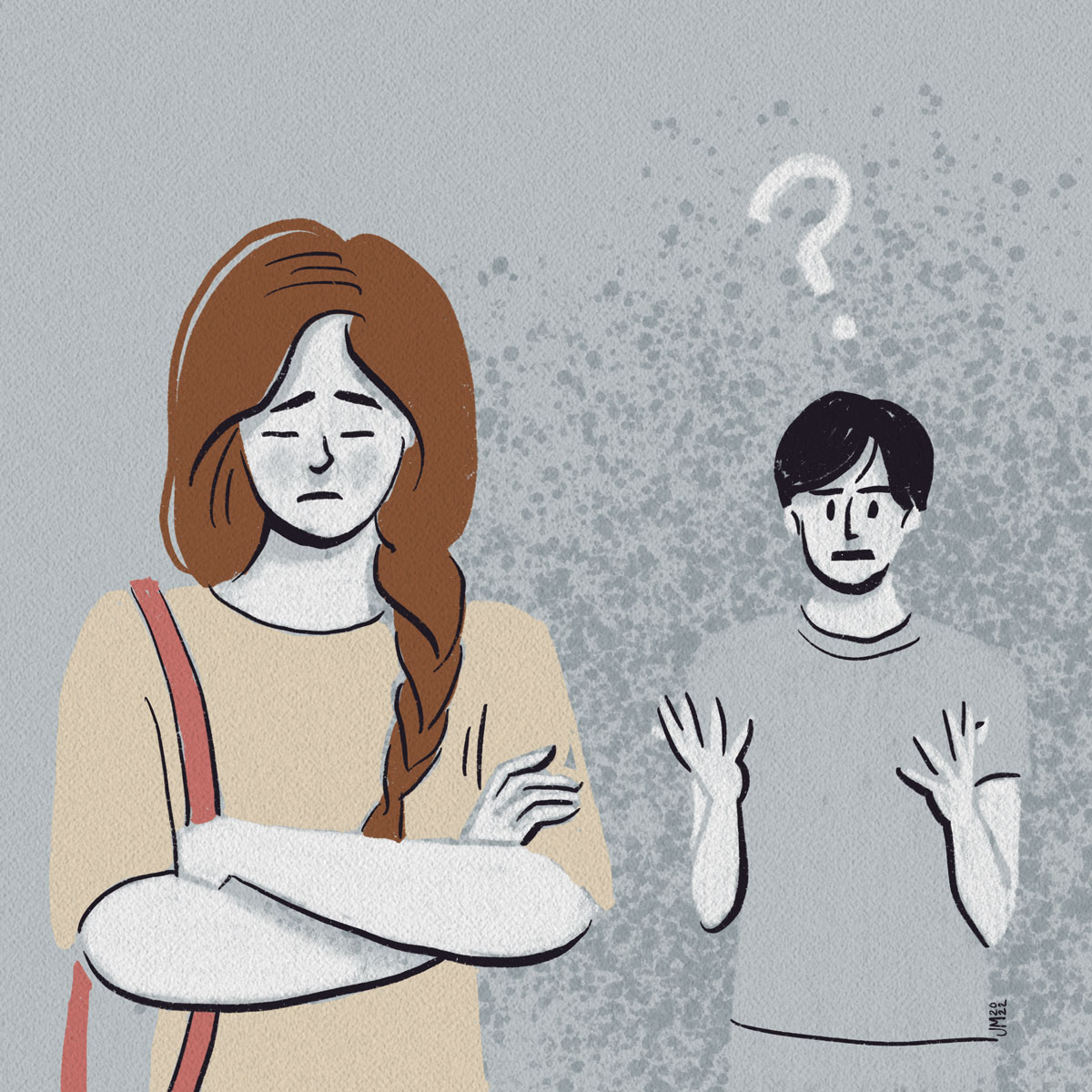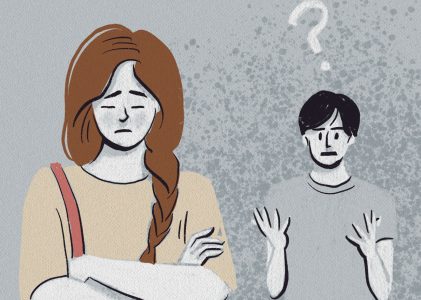Loving someone with untreated depression can feel worrisome to downright aggravating. Here’s what you can do to encourage them to get treatment.
Your partner can’t sleep at night and often feels grouchy, tired, and hopeless. They stop answering texts from friends and they rarely take a shower. You don’t need birth control because that’s not happening either. If you recognize behaviors like these in your partner, they may be struggling with major depression.

Major depression is one of the most common mental health disorders in the US. In 2020, about 8.4% of adults had at least one depressive episode. Of those adults, about 34% went untreated.
Untreated depression damages the things that matter most—relationships, quality of life, physical health and productivity. People who suffer from depression often struggle to take care of their own needs and may not have any bandwidth left for their romantic partner’s needs. This can lead to the partner feeling confused, helpless or neglected.
If you find yourself in this situation, it’s important that you try to get your partner to seek help from their primary care doctor or a mental health professional with specialized training in mental disorders (i.e., a psychiatrist, a psychiatric nurse practitioner, a clinical psychologist, or a licensed clinical social worker).
How to talk to your partner about getting treatment
Convincing your partner to accept help may be easier said than done, but here are some ways to start the conversation and make it go more smoothly:
- Tell your partner that you’d like to set a time to connect and talk about each other’s needs.
- Pick a time when you’re both reasonably well-rested and calm.
- Choose the right place. The space should feel private and relaxing.
- Specify boundaries – that you won’t talk over each other or raise your voices.
- Use “I” statements to tell your partner how you feel. For example, instead of saying, “You don’t show me affection anymore” try something like “I miss being physically close to you.”
- Express your concerns about your partner’s mental health and how you think their depression affects your relationship.
- Let them know that you understand that their mood is affecting their behavior and that you still love them. Tell them that you’re here to support them in their journey to get better.
- Ask them what they’d think about getting professional help. If you helped them make an appointment, would they be willing to go to it?
- Listen patiently. Allow your partner to say how they feel and what they need without trying to change it.
- If they aren’t willing to seek treatment yet, take a step back and suggest smaller steps, like planning to do an activity together. You might go on a date, go for a walk, watch a funny movie together, or play a game—anything to increase your connection and have some fun. When the time feels right, you can broach the topic of treatment again.
Next Steps
If you think someone you love may struggle with depression, seek professional help before it gets worse.
Call your loved one’s doctor or contact Athena Care, for comprehensive mental health treatment in Tennessee.
One of our Care Coordinators will help you get the care you need.

Rachel Swan, MS
Editor
Rachel has a Masters of Science in Clinical Psychology from Vanderbilt University, where she spent 16 years as a Research Analyst in the Psychology and Human Development Department.


